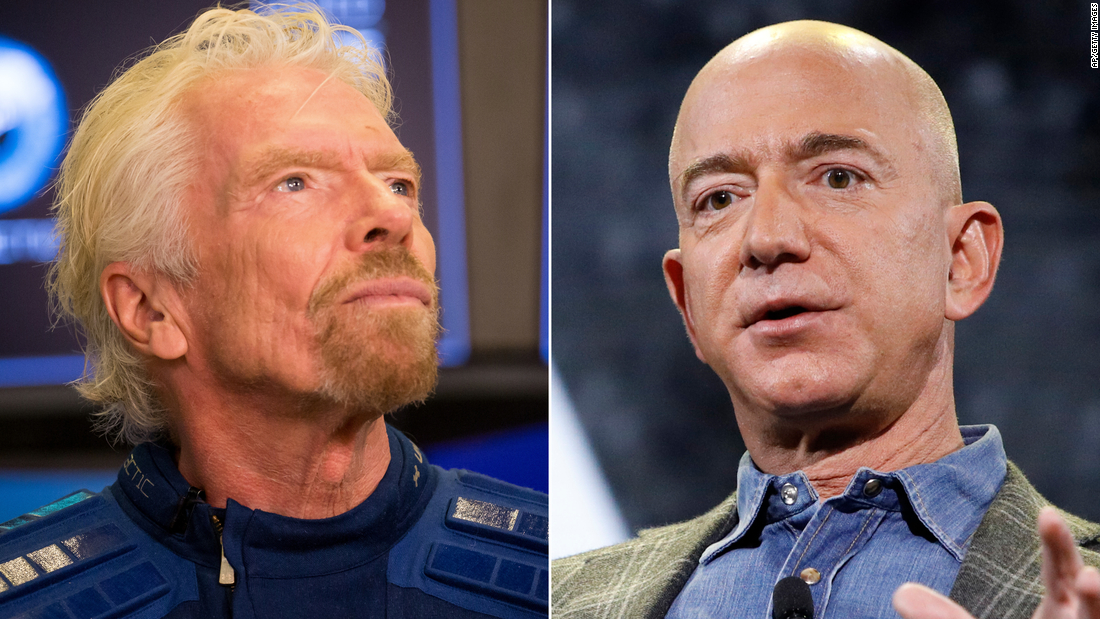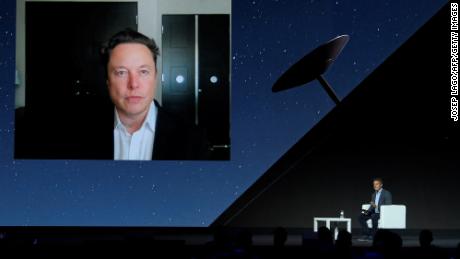Starship troopers Bezos and Branson, reporting for duty
The 20th century space race changed the world and the way we live in it. It was a decades-long battle of engineering and innovation between countries with dueling ideologies pushing the boundaries of science to go where humans never had.
Richard Branson’s got a flight crew, who appeared in a trailer-style video all dressed in Star Trek-esque uniforms.
Ideas vs. advertising. The first space race spanned multiple presidents and premiers. Kennedy, Krushchev, Brezhnev, Nixon. It made heroes of astronauts and cosmonauts. It focused national prides around Sputnik and the moonshot.
It ended with the idea of American capitalism and democracy triumphing over Soviet communism and the world coming together, for a short time, on a space station.
This year’s race between the billionaires features none of that national pride or opposing ideas. It’s tax-averse tycoons who want to sell high-priced tickets to rich people interested in experiencing weightlessness. Amazon’s Bezos has said he is funding his portion by selling off large chunks of his Amazon stock — $1 billion or more a year.
But Bezos is no longer CEO of Amazon. He gave up that post, perhaps in part to go on his space adventure on a rocket from his Blue Origin company, which is planned for later this month. Branson plans to take off for his own flight Sunday.
Virgin Galactic’s flights are brief, up-and-down trips, though they will go more than 50 miles above Earth, which the United States government considers to mark the boundary of outer space.
Virgin Galactic’s suborbital flights hit about more than three times the speed of sound — roughly 2,300 miles per hour — and fly directly upward. The plane will hover at the top of its flight path, giving passengers a few minutes of weightlessness. It works sort of like an extended version of the weightlessness you experience when you reach the peak of a roller coaster hill, just before gravity brings your cart — or, in Branson’s case, your space plane — screaming back down toward the ground.
Bezos, meanwhile, will be on a rocket and capsule system, which blasts off, rather than taking off, and drops back down, rather than landing on a runway.
One important difference, she writes, is that Branson’s flight is piloted, whereas Bezos’ is automated.
Other companies are also in the commercial space tourism game. Axiom, a Houston-based company using a SpaceX Dragon capsule will send a former astronaut, Peggy Whitson, and a tourist, the entrepreneur and race car driver John Shoffner, to the decades-old International Space Station.
What’s all this good for? I asked Wattles, who covers space and rockets for CNN (what a great beat!) how to view this space baron flight-off and the idea of space tourism generally compared to the more nationalist space race of the ’60 and ’70s. Is there a greater good being served by rich people pushing boundaries like these?
Here’s what she said:
That’s a tough question. If you ask diehard space fans, the benefit is all in the inspiring new technologies being developed, particularly the ones that promise to get cargo and people to orbit quicker and cheaper. Think of all the science that can be done if space travel is less prohibitively expensive! As for Branson and Bezos’ race to space, they bill suborbital space tourism as a way to spread the “overview effect” — a drastic shift in perception that astronauts have said they’ve experienced when viewing the Earth from far away. I think a little cosmic perspective is always a good thing. But will the world’s wealthiest really become better Earthly citizens after taking a supersonic joy ride 50-plus miles high? Only time will tell.
![]()




